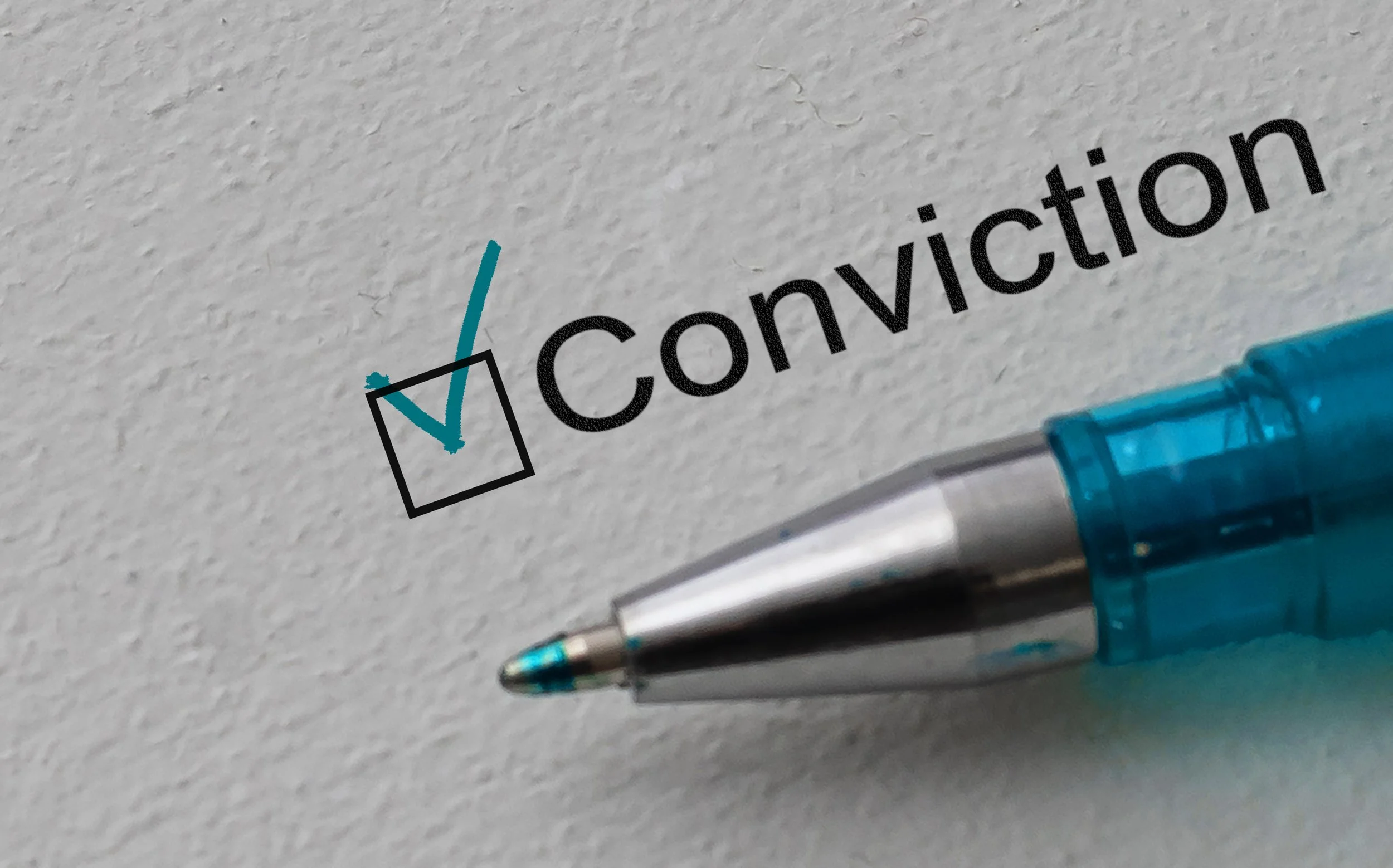How does a conviction affect you in the world of employment?
As a professional, you’re aware that your actions should always be above board. Most professionals are careful to stay within the law, and uphold their reputation.
But convictions are more common than you might think. It may be an existing caution or conviction for petty theft you did as a teenager. Or you may have been involved in legal protests that got out of hand.
How does a conviction affect you in your professional employment?
Existing employment
If you’re already in employment and you’re facing a new conviction, how you handle it technically depends upon the terms of your contract of employment. Is there a duty to inform your employer? If so, you could be in breach of contract if you don’t disclose it, and it could lead to your dismissal.
If the conviction isn’t relevant to your role at work though, it shouldn’t (in itself) be a reason to dismiss you. Your employer may start disciplinary procedures though, and they may decide they need to take action for the sake of the reputation of the organisation.
The added complication as a professional is that you will need to inform your regulatory body, who may also decide to take action. It doesn’t necessarily mean that you will get struck off. It’s important that you’re seen to be open and honest.
Some crimes that have an element of dishonesty to them (like fraud or theft for example) may be reason to cancel your membership to the regulatory body. Doctors, lawyers, and accountants are expected to have the highest standards of honesty and integrity and any suggestion of dishonesty could bring the profession into disrepute.
The best course of action is to get a defence solicitor on board as soon as possible. At Harewood Law, we have experience in defending professionals when they have a new conviction, or when they are under investigation by the regulatory body.
We can give you emergency, or ongoing support, to make the situation slightly less stressful, and to help you put your best foot forward.
Applying for new jobs
If you’re applying for new jobs, then previous convictions might be relevant to your employer.
As we mentioned earlier, certain professions like healthcare, law, accounting, and childcare have stringent requirements about previous convictions. The regulatory body may prevent you from entering the profession. But this is not necessarily a done deal.
If you’re going into one of these professions, you should disclose any cautions, or spent convictions, or unspent convictions. The most important thing is to demonstrate that you’re honest. The regulatory body may still accept you, once they’ve probed a little further into the details, but if you try to hide it, they may deny you access on the basis of dishonesty.
In other jobs, whether or not you have to disclose your conviction depends on whether it is spent or unspent.
Unspent convictions and cautions will show up on all DBS checks. In any event, you have to disclose it if an employer asks you, and it’s a criminal offence not to disclose it when asked. Prospective employees are often asked about criminal convictions at the interview.
However, if you’re not specifically asked about your convictions, you do not have to disclose unspent convictions.
Spent convictions on the other hand won’t show up on basic DBS checks, but they will show on standard or enhanced DBS checks. You don’t usually have to disclose a spent conviction when you apply for a job, and employers are not generally entitled to ask you about spent convictions. Even if they ask, you are not usually obliged to disclose it.
But if your employer runs standard or enhanced DBS checks, they will find out about your spent convictions and cautions.
When convictions become ‘spent’
As you can see, it’s important to know when your conviction becomes spent.
If you were sentenced to a fine as a consequence of your criminal offence, it will be ‘spent’ after a year. This is not the same as a speeding fine. You have no conviction for a speeding fine, so long as you pay it.
If you were given a prison sentence of four years or less, the conviction is spent after a period of two to seven years, plus the period of your sentence.
Cautions are either spent immediately, or after three months for a conditional caution.
If you’re not sure whether your conviction is spent or unspent, we can advise you.
For any information on this topic, or for representation to defend you in regulatory proceedings, please get in touch with us at Harewood Law. We have helped many professionals to find and keep employment, even in the face of a conviction.
0333 3448377 | info@harewoodlaw.com

